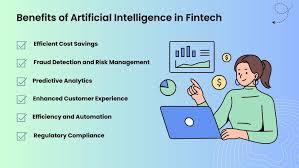In the fast-paced world of fintech, artificial intelligence is revolutionizing how financial services detect and mitigate risk. But with great power comes great responsibility. As AI becomes more integrated into banking, payments, and investment platforms, maintaining ethical standards is not just a best practice—it’s a necessity. Carlo PEaaS (Predictive Ethics-as-a-Service) is at the forefront of this movement, demonstrating how fintech AI ethics, compliance automation, and financial AI trust can converge in real time.
The Ethical Dilemma in Fintech AI
AI systems now power everything from credit scoring to fraud detection and regulatory compliance. While this brings incredible efficiency, it also introduces new challenges: algorithmic bias, lack of transparency, and potential misuse of personal data.
Many fintech companies rush to deploy AI tools to gain competitive edges without fully considering the ethical implications of AI in finance. This oversight can lead to compliance failures, reputational damage, and loss of consumer trust.
What is Carlo PEaaS?
Carlo PEaaS is an AI-driven platform designed to ensure ethical risk detection in real time. Built specifically for financial institutions, Carlo offers a cloud-based, plug-and-play solution that monitors AI models and decisions for ethical compliance, fairness, and transparency.
PEaaS integrates seamlessly with existing fintech stacks, enabling banks, payment processors, and neobanks to meet both regulatory and ethical standards without compromising on speed or innovation.
Real-Time Compliance Automation
At its core, Carlo PEaaS is about compliance automation—but not just checking boxes. The system uses machine learning models trained to identify anomalies that suggest bias, discriminatory patterns, or potential regulatory violations.
For example:
If an AI-powered credit risk model starts favoring or penalizing users based on non-financial features, Carlo flags it instantly.
If a fraud detection model is generating disproportionate false positives for a specific demographic, Carlo intervenes with explainability metrics and mitigation suggestions.
This proactive approach to ethics ensures financial services stay compliant as regulations evolve and helps avoid costly legal and operational repercussions.
Building Financial AI Trust
Trust is the cornerstone of any financial relationship. Consumers and regulators alike are increasingly skeptical of black-box AI systems, especially when they make life-changing decisions like loan approvals or fraud claims.
Carlo PEaaS builds financial AI trust by making ethical performance measurable. With transparent dashboards, audit trails, and explainable AI components, the platform empowers compliance officers, regulators, and even customers to understand and challenge AI decisions.
In an age where AI ethics can directly impact the bottom line, Carlo is not just a risk detection tool—it’s a trust accelerator.
Conclusion
As fintech continues to evolve, so must our approach to ethics and accountability. Carlo PEaaS is leading the way by embedding AI ethics into the DNA of financial technology, enabling real-time, automated compliance and enhancing public trust in AI-driven financial systems.
In the end, ethical AI is not just about avoiding risk—it’s about doing right by customers, regulators, and the future of finance.







